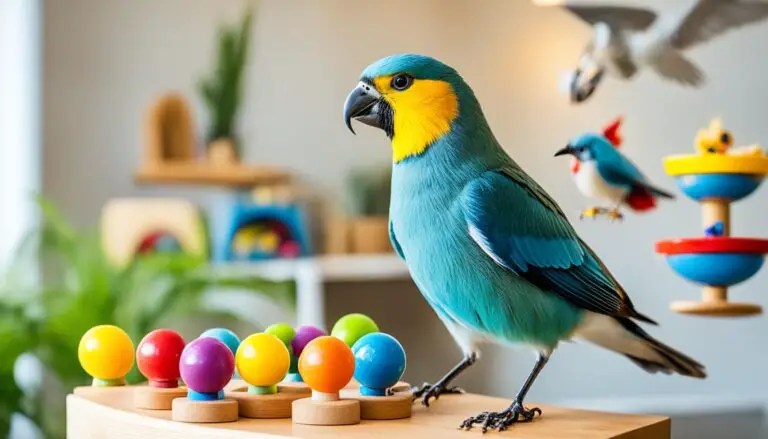Expert Tips on Exotic Animal Behavior Modification
Did you know that recent studies show about 80% of exotic pet owners deal with major behavior issues in their pets? This high percentage points to the urgent need for good strategies in modifying exotic animal behaviors.
It’s critical to understand and deal with the complexities of exotic animal behaviors. Over the last two decades, experts like Dr. Susan G. Friedman, PhD, and skilled vets have led the way in improving behavior modification techniques. Their methods look beyond simple medical solutions. They focus on the crucial role an animal’s surroundings and past learning have on its behavior.
These advanced techniques aim to make exotic animals’ behaviors better under our care. This means we should recognize and respect their needs and instincts. Then, we can use responsible training methods that fit well with these natural behaviors.
Key Takeaways
- Understanding exotic animal behavior is crucial due to their unique challenges.
- Experts like Dr. Susan G. Friedman emphasize the importance of environment and learning history in behavior modification.
- Advanced animal behavior modification strategies go beyond medical diagnoses.
- The primary goal is to respect and integrate the natural behaviors of exotic animals.
- Effective modification strategies contribute to the overall well-being of exotic animals in human care.
Understanding Exotic Animal Behavior
Studying exotic animal behavior brings together many scientific ideas. Experts use Applied Behavior Analysis (ABA) to understand how animals act. This method focuses on how the animal’s environment shapes its behavior.
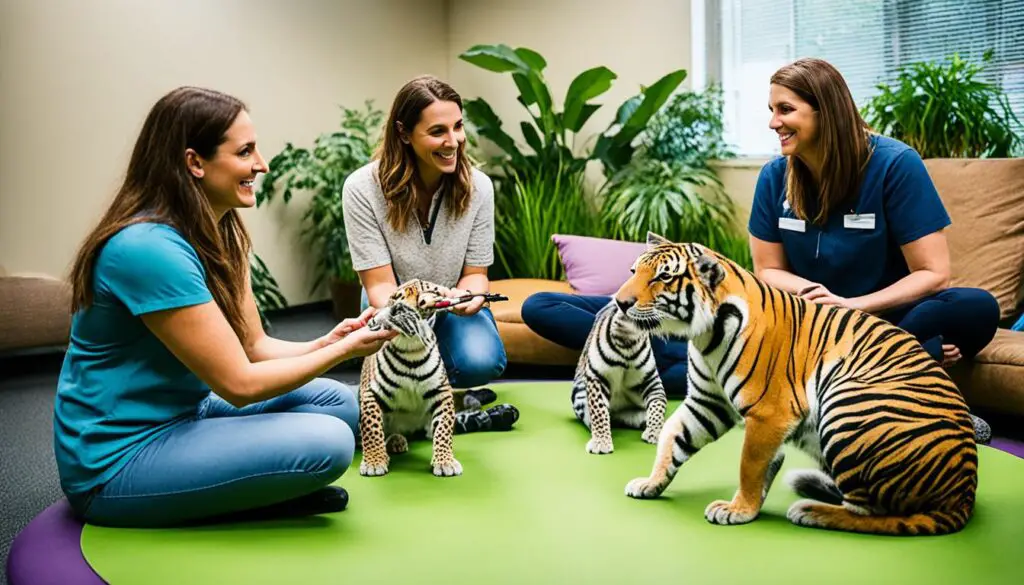
The Role of Applied Behavior Analysis (ABA)
ABA is key in changing the behavior of exotic animals. It looks closely at how the environment affects what animals learn. By changing the surroundings, ABA helps animals stop bad habits and encourages good ones.
This approach looks deeply at an animal’s ability to change how it behaves. It makes sure any changes fit with how the animal naturally acts. This way, the animal and its environment work well together.
Common Misconceptions About Exotic Animal Behavior
Debunking myths about animal behavior is important in therapy. One big mistake is only blaming fear for bad behaviors, like biting. Experts say we must look at the whole picture, including what’s happening around the animal.
Good techniques for helping animals behave better focus on the specific things that trigger their actions. This counters false ideas with real, measurable methods. These methods change the environment to improve how the animal behaves.
| Approach | Benefit |
|---|---|
| Applied Behavior Analysis (ABA) | Addresses environmental factors to reduce problematic behaviors |
| Animal Behavior Consulting | Provides expert assessments and personalized modification plans |
| Animal Behavior Therapy | Incorporates therapeutic strategies to enhance behavioral wellness |
| Exotic Species Behavior Modification | Utilizes species-specific techniques for effective behavior change |
Effective Techniques for Exotic Animal Training
Training exotic animals uses special methods to get the animals to act well. These methods also make sure the animals are happy. Two main ways of training, positive reinforcement and environmental enrichment, work really well.
Positive Reinforcement Strategies
Positive reinforcement is key to changing an animal’s behaviors in a good way. Trainers give rewards to encourage the good things the animals do. Dr. Julia Albright says it’s important to figure out why animals act out. By doing this, we can fix the problem without being mean, which is much better for everyone.
Here are some tools for positive reinforcement:
- Treat-dispensing toys
- Clicker training
- Verbal praise
Using these tools makes learning fun for the animals. It also helps them do more of the good stuff.
Utilizing Environmental Enrichment
Creating a good environment is crucial for managing animal behavior. This means giving the animals things to do that make them happy and think. Using games and toys can help lessen bad actions caused by boredom or stress.
Techniques like placing puzzles and toys around their area increase their mental and physical health. This keeps them happy because they get to act like they naturally would. It’s super important for animals living with people.
By using both of these methods, trainers can help animals be their best. This makes a great place for the animals and the people who take care of them.
The Importance of Professional Animal Behavior Consulting
Exotic animal behaviorists are key to exotic pets’ well-being. They use animal behavior consulting to tackle behavioral issues. These experts work together to create effective plans for exotic pet behavior management. They make sure both the pet and the owner’s needs are considered.
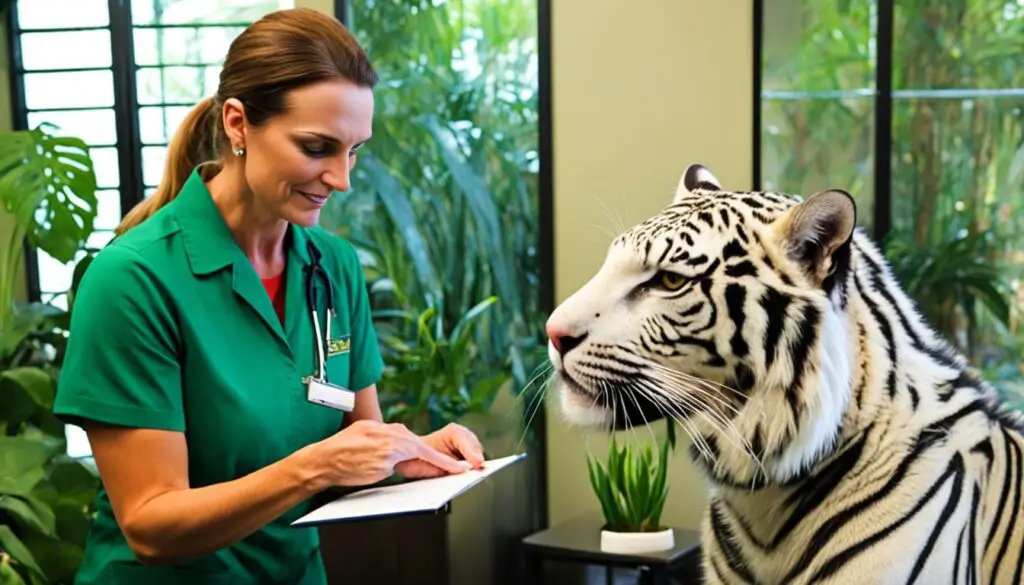
Vets and behaviorists join forces in professional consultations. Working together, they offer thorough solutions. These tackle both health and behavior problems.
Collaboration Between Veterinarians and Behaviorists
Working together, vets and behaviorists achieve great results. For instance, the California Condor Recovery Team shows the power of teamwork. They use both medical and behavior knowledge to solve tough issues. Their approach brings fresh, effective solutions.
Case Studies and Success Stories
Exotic animal behaviorists have seen many success stories. The key is in diverse experts working together. By combining medical and behavior management, they make a big difference. This shows how shared knowledge brings better results in exotic pet behavior management.
Exotic Animal Behavior Modification Strategies
The success of changing exotic pet behavior comes from kind and smart ways. Dr. Jenifer Zeligs has led the way for more than 40 years. Her work is about love and understanding what animals really need and want.
Important steps include making the place right for each animal, offering other good things to do, and figuring out what makes each animal tick. This way, the animals feel more in control. They stay happy and involved when learning and spending time with people.
- Changing the environment
- Giving fun and good behaviors to do
- Figuring out what each animal likes
Getting help from experts in specialized animal behavior is key. They make sure the methods are good for animals and that the animals lead full and happy lives. Dr. Zeligs and others work to balance animals’ natural ways with good training.
Conclusion
Exotic animal behavior modification needs a full approach. It involves using both science and care to help these animals. It’s more than teaching tricks. It’s about healing their minds and bodies.
To change an animal’s behavior, we need many experts. They use good methods like making them happy and improving their home. Vets and behaviorists work together to make plans that fit each animal. This way, the plans respect the animals’ natural ways and their personal needs.
Learning about exotic animals never stops. Sharing what we know helps everyone do better, making a good place for these animals. A full, team effort makes the animals’ lives better. It also helps us love and care for them even more.
FAQ
What is the scientific foundation for understanding and modifying exotic animal behavior?
What are common misconceptions about exotic animal behavior modification?
How does positive reinforcement work in exotic animal training?
What role does environmental enrichment play in modifying exotic animal behavior?
Why is professional animal behavior consulting important for exotic pets?
Can you provide examples of successful collaborations in the field of exotic animal behavior modification?
What are some advanced animal behavior modification strategies?
Who are some influential figures in the field of exotic animal behavior modification?
How can owners ensure their exotic pets’ behavioral wellness?
What is the significance of environmental factors in exotic animal behavior?
Source Links
- https://www.behaviorworks.org/files/text_chapters/DRAFT Exotic Animal Behavior Support from Applied Behavior Analysis.pdf
- https://www.dvm360.com/view/feline-behavior-modifications-actually-work
- https://animaltraining.us/
Peter Stones is the founder of Exotic Pets Place, the leading online resource for exotic pet care information.
With over 10 years of hands-on exotic pet ownership experience, he is deeply passionate about sharing his expertise to help others properly care for their unusual pets.
When he's not writing extensively researched articles or connecting with fellow exotic pet enthusiasts worldwide, you can find Peter at home tending to his own beloved menagerie of exotic animals.

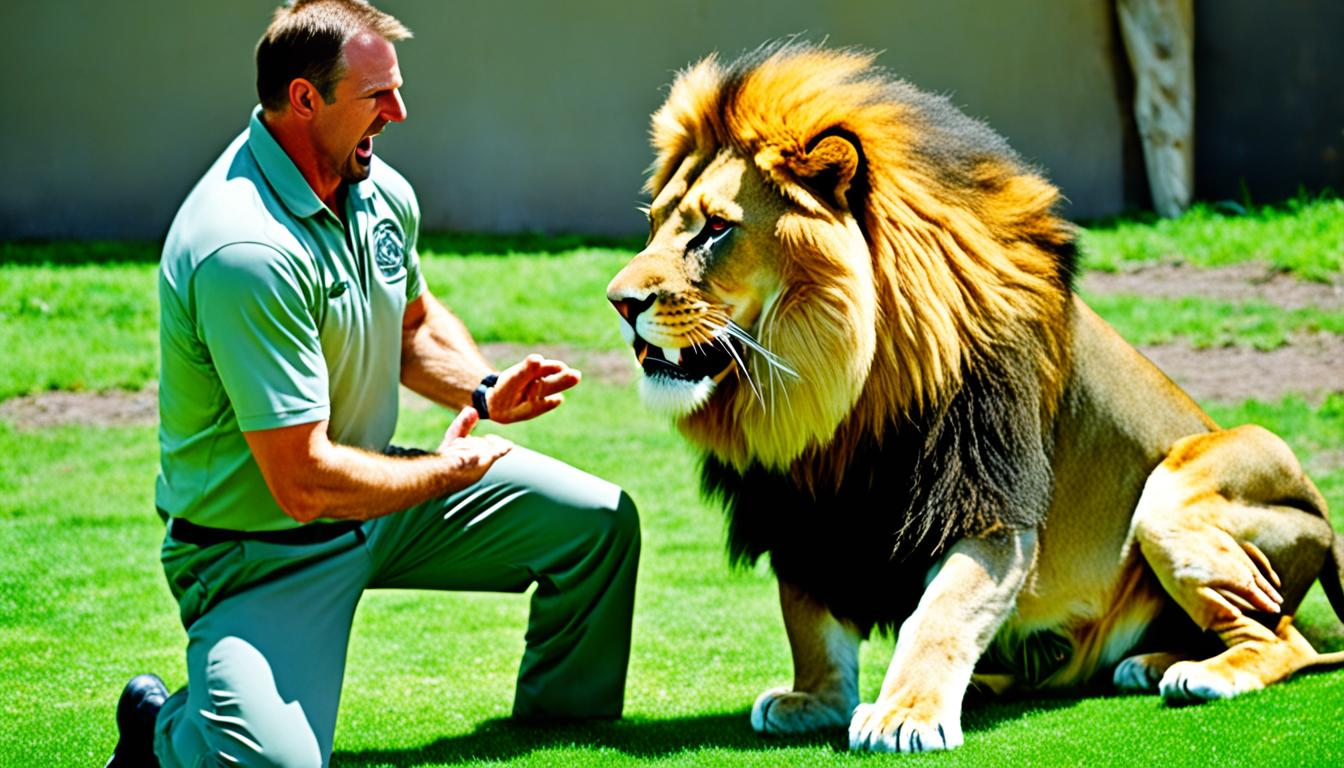
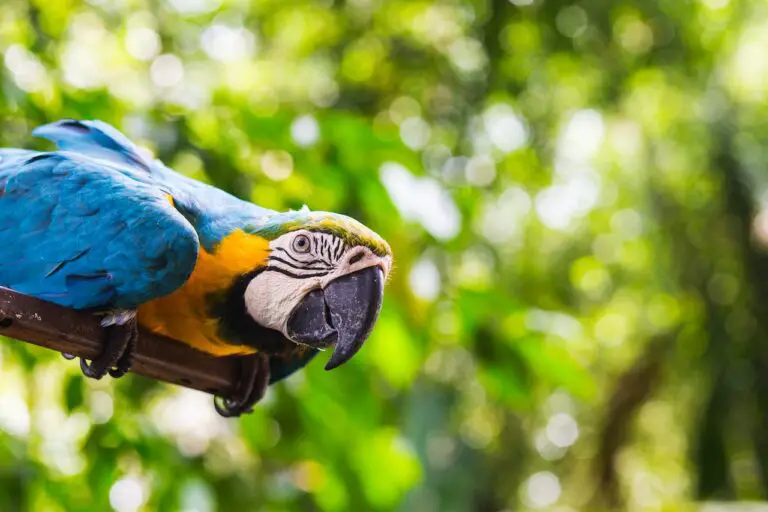

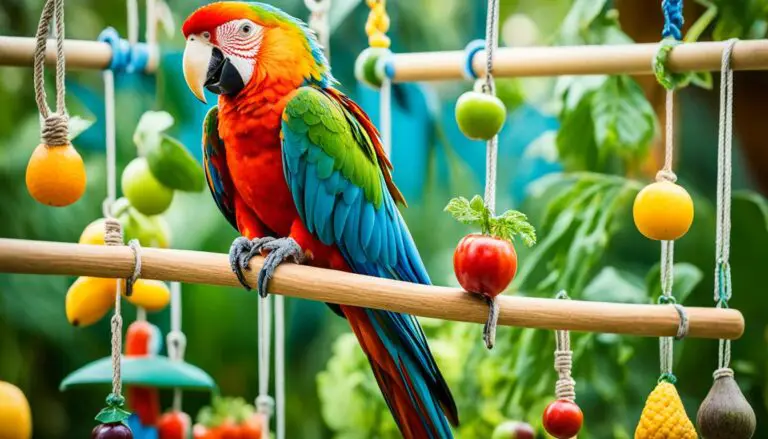
![How to Train Your Exotic Pet to Use a Litter Box [+ Practical Tips], a fluffy puppy in a box](https://exoticpetsplace.com/wp-content/uploads/2023/05/How-to-Train-Your-Exotic-Pet-to-Use-a-Litter-Box-Practical-Tips-a-fluffy-puppy-in-a-box-768x512.jpg)

